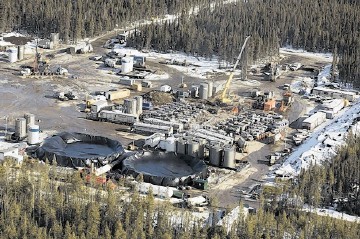
While the Prime Minister and Ofgem’s proposed changes to gas tariff arrangements continue to prompt questions from politicians and industry alike, it may have escaped the attention of some observers that plans have also been recently announced by the Conservatives to promote a significant increase in investment in shale gas exploration and production in the UK.
At the Conservative Party conference on October 8, Chancellor George Osborne unveiled a proposal for a “generous” new tax regime for investment in shale gas activities that will be the subject of a forthcoming consultation with industry.
Shale gas production by hydraulic fracturing (fracking) has been suspended in the UK since 2011 after drilling by Cuadrilla Resources was found to have caused two small earthquakes in Lancashire and there remains strong opposition to this controversial extraction stimulation process.
However, John Hayes, a new energy minister, has indicated last week that the Government may sanction the resumption of fracking operations by Cuadrilla before the end of the year, describing shale gas exploitation as having “great potential” for the UK.
Meanwhile, Ed Davey, the Liberal Democrat Secretary of State for Energy and Climate Change, recently assured delegates to a gas conference in London that he hopes now to “give a green light to shale”, an indication of the Coalition’s desire to make investment in UK shale gas exploration and production an attractive proposition to businesses and to install shale gas as an integral part of the British future energy portfolio.
Davey suggested last week that a formal position is expected from the Government this month on the shale gas issue to coincide with the release of its gas strategy and the Energy Bill.
The Conservatives cite the US as an inspiration after a shale gas boom there boosted the economy, lowered natural gas prices and is decreasing reliance on foreign countries for energy imports.
While hoping to reap similar benefits in the UK, the Tories are presumably also motivated by concerns over steeply declining North Sea gas reserves and uncertainties around the timely delivery of planned renewable and nuclear alternatives to meet a growing domestic energy demand.
Increased indigenous natural gas production may also help to attract financial support for the proposal by DECC that an additional 20GW (gigawatts) of new-build gas-fired plant be brought on-line in the UK by 2030.
The newly-announced shale gas proposals have attracted queries and criticism from both the energy industry and environmental groups. Critical responses have ranged from doubts as to the recoverable shale gas reserves present in the UK relative to the US to concerns over the safety of the fracking process and the effect that such an increase in gas production will have on the environment.
Shale gas opponents have pointed to the Government’s commitment to cutting greenhouse gas emissions by at least 80% by 2050 and questioned the compatibility of this commitment with the proposed increase in shale gas production.
The Government appears confident that shale gas production can be increased without compromising the commitment to cutting emissions.
A recent report by the energy consultancy Pöyry would seem to support this position, apparently suggesting that an increased investment in shale gas would result in reduced imports of liquefied natural gas (LNG), which is claimed to be associated with higher carbon emissions than for shale gas.
The need to adequately address public concerns over the safety of fracking seems also to have been considered by the Government and it appears likely that stringent rules and regulations in respect of the process will be introduced before it can be recommenced.
Any move to facilitate investment in the shale gas sector will be welcomed by the main players in the industry, with UK shale gas exploration licence holders IGas Energy, Cuadrilla, BG, Celtique Energie, Reach Coal Seam Gas and Dart Energy all standing to benefit from the proposed tax incentives.
Meanwhile, DECC has announced that a new estimate of shale gas resources in the Bowland formation in north-west England (the location of last year’s earthquakes) is to be released before the end of the year, with a comprehensive figure for the entire country to be published next year.
The development of a sufficiently attractive incentive package for shale gas investment and the findings of these DECC publications, along with the robustness of the Government’s promotion of shale gas exploitation in November’s gas strategy and Energy Bill, may turn out to be pivotal factors in the success or failure of the Government’s aspirations for a shale gas revolution in the UK.
Penelope Warne is head of energy at international law firm CMS Cameron McKenna
